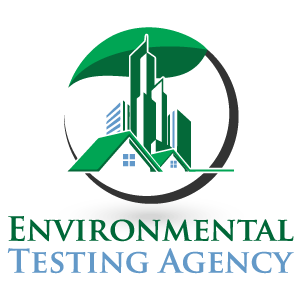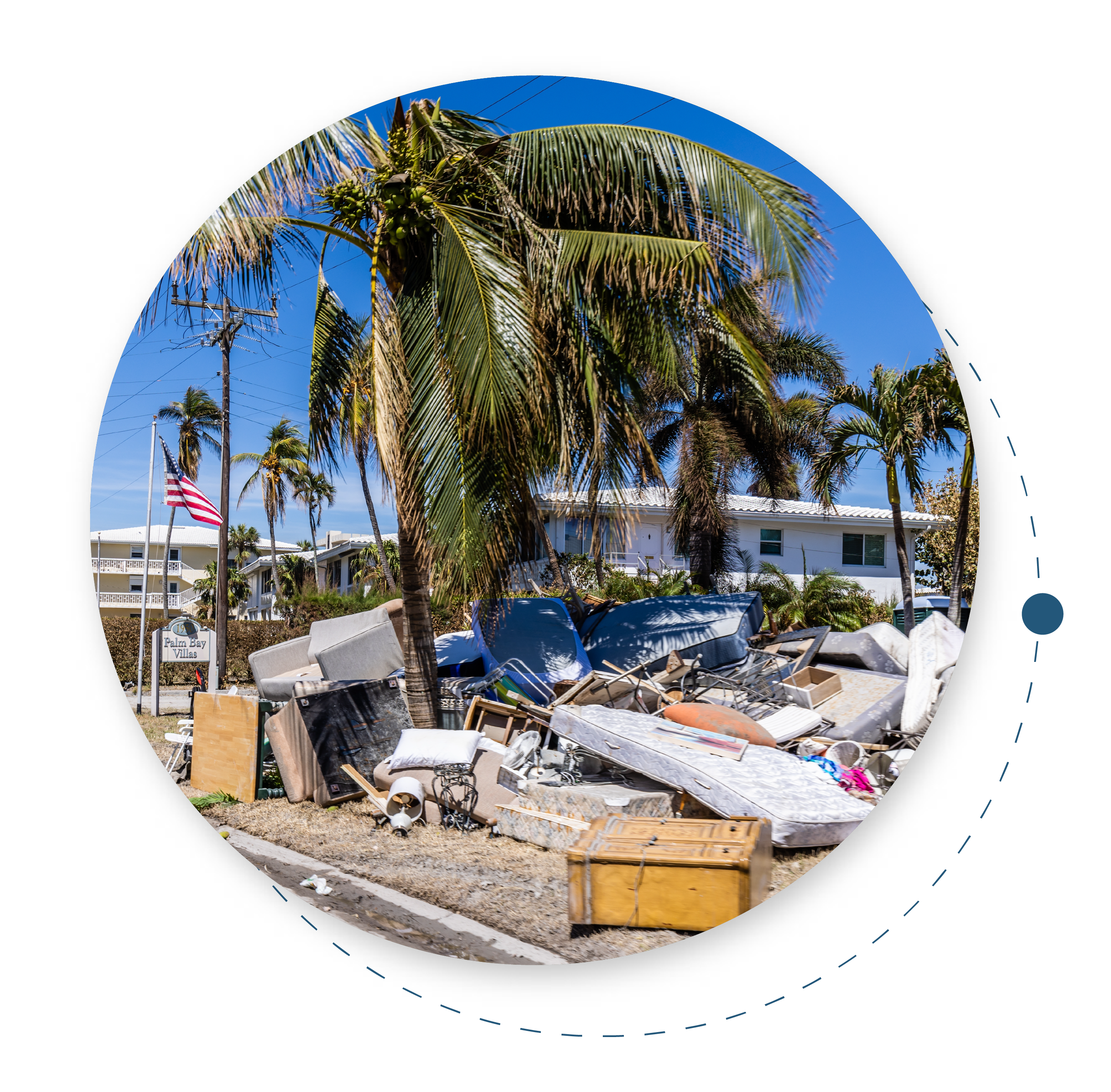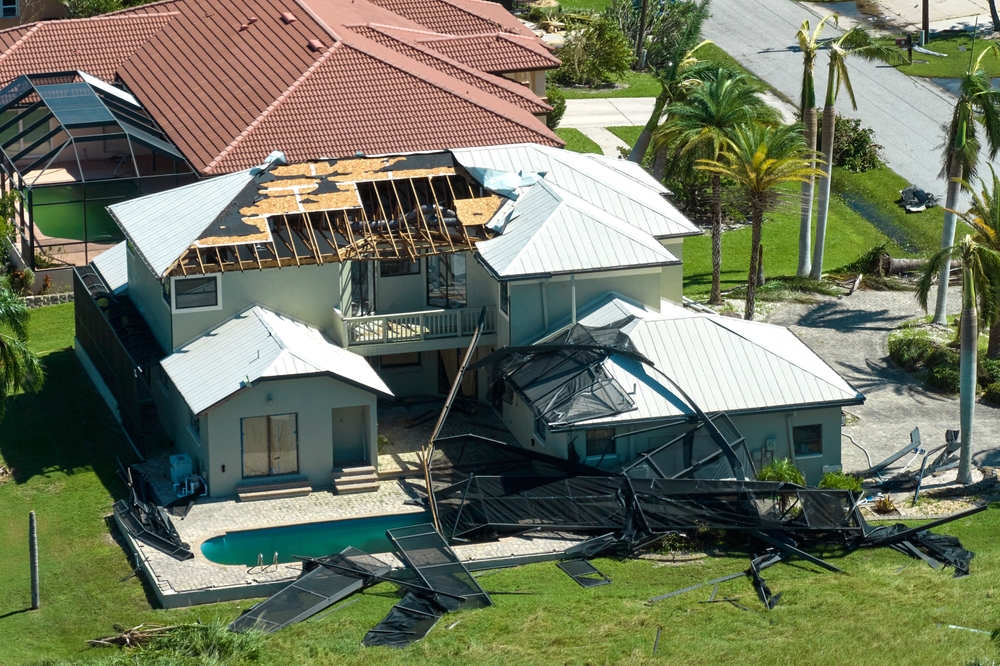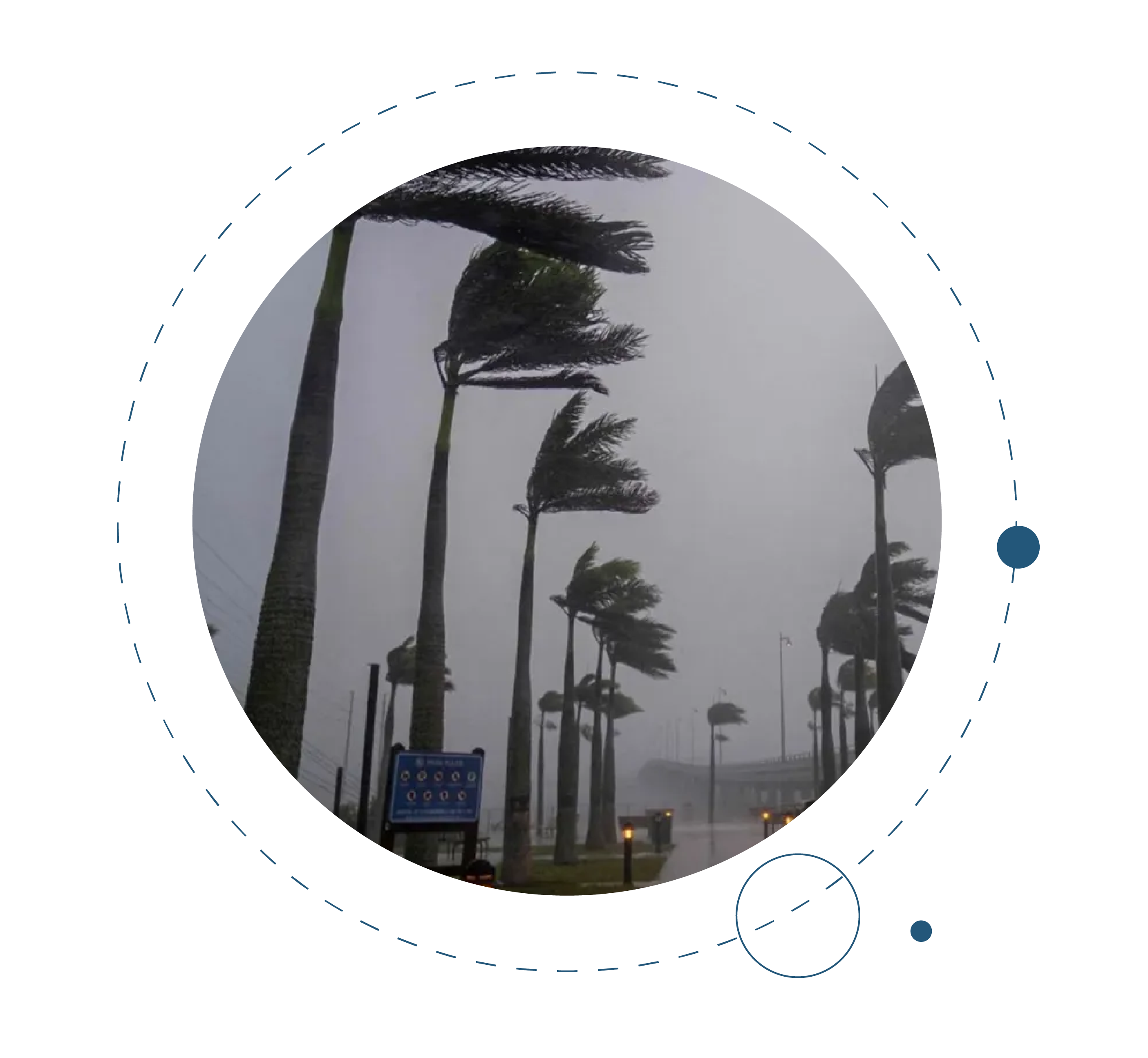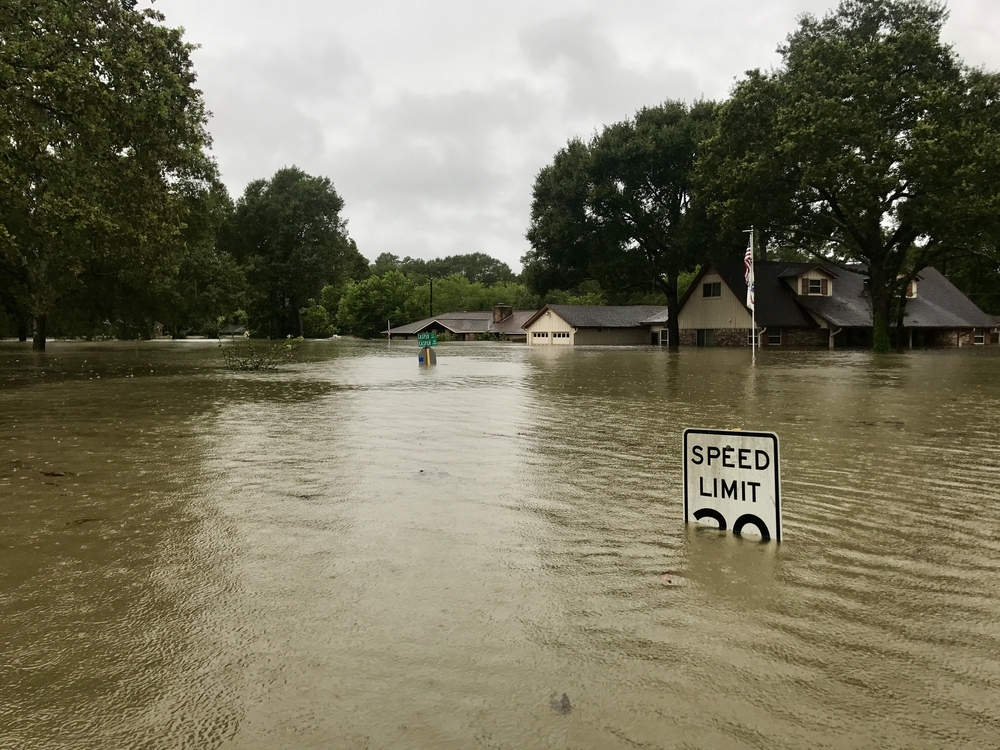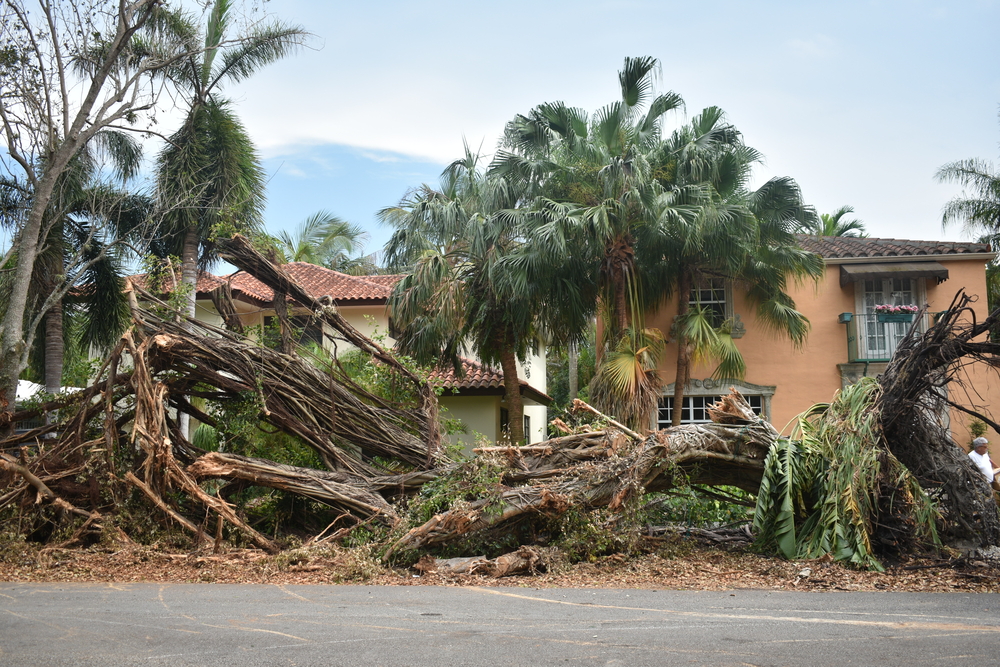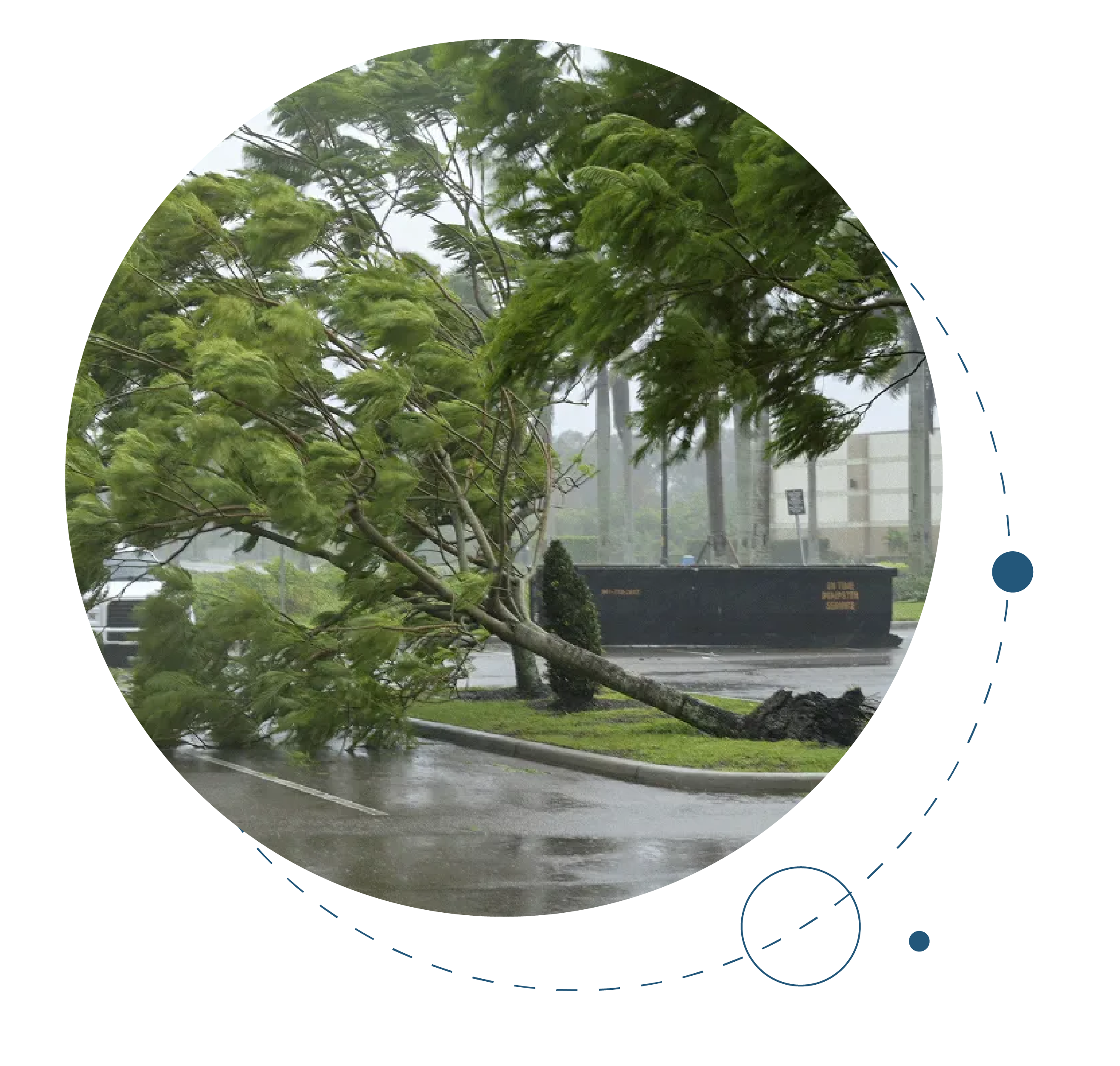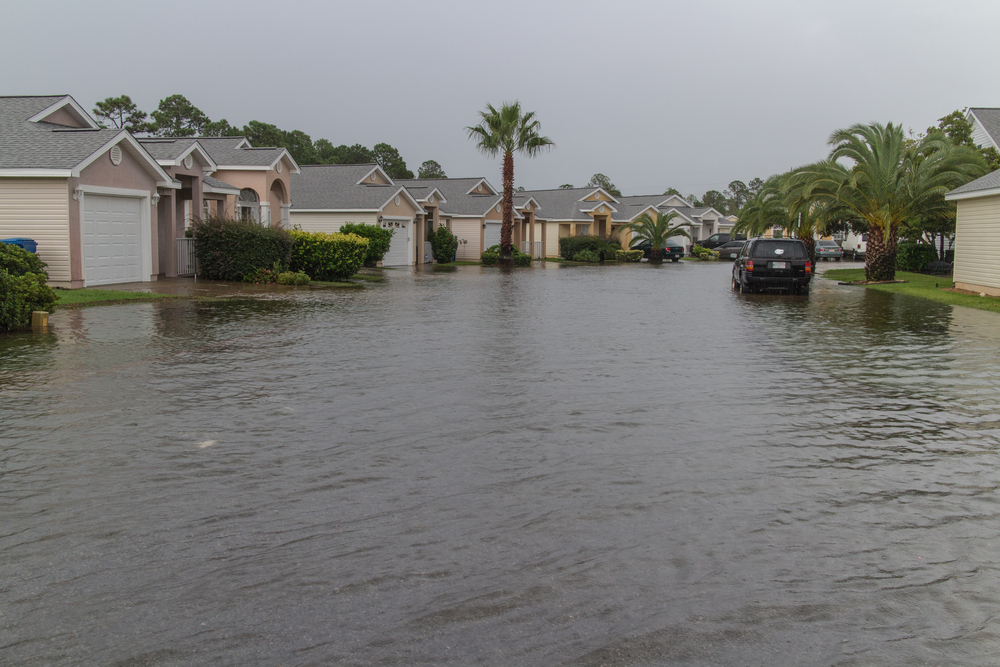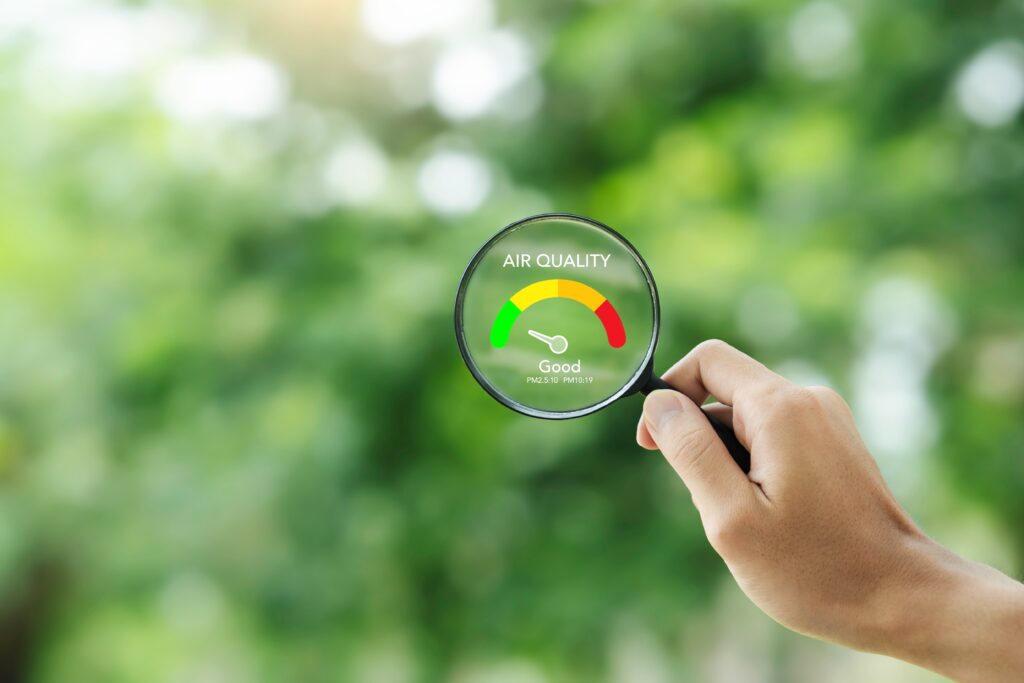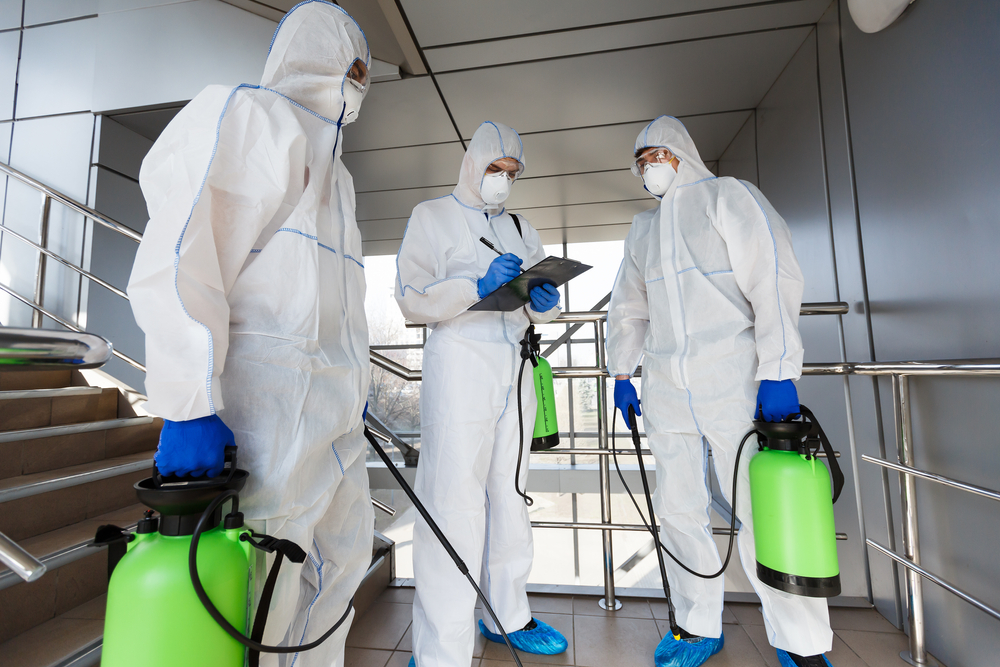What Does Hurricane Insurance
Cover in Florida?
All about Hurricane Season in Florida
and how we are certified to help you!
What Constitutes Hurricane Insurance?
Before we get into specifics, it’s essential to clarify that ‘hurricane insurance’ isn’t a standalone policy; instead, it’s a combination of various insurance types that collectively provide coverage against hurricane-related damages. These include homeowners insurance, flood insurance, and sometimes windstorm or wind coverage.
Homeowners Insurance
Mostly speaking, a standard homeowners’ insurance policy in Florida will cover the structural damage caused by a hurricane. This usually includes damage to the building and any other structures on your property, like garages or sheds.
Flood Insurance
Homeowners insurance doesn’t cover flooding—even when a hurricane causes it. This is where flood insurance comes into play. You’ll need to purchase separate coverage through the National Flood Insurance Program (NFIP) or a private insurer.
Windstorm Insurance
In some coastal regions of Florida, homeowners insurance policies may exclude windstorm damage. If that’s the case, you’ll need a separate windstorm policy to cover this damage.
The Importance of Hurricane Insurance in the Sunshine State
Florida is renowned for its beautiful beaches, vibrant culture, and sunny weather. However, it’s also one of the most hurricane-prone states in the U.S. With the Atlantic hurricane season spanning from June 1 to November 30, Floridians must be prepared, including having the right insurance coverage. In this guide, we’ll delve into the intricate world of hurricane insurance in Florida, explaining what it generally covers, what it doesn’t, and why it’s crucial for residents.
What Does Hurricane Insurance Cover Specifically?
Structural Damages
The main aim of hurricane insurance is to protect against structural damage to your property. This could include:
- Roof repairs or replacement
- Window and door repairs
- Interior and exterior wall repairs
Personal Property
Your belongings inside the house are typically covered up to a specific limit, including furniture, electronics, and clothing. Expensive items like jewelry may have lower coverage limits, so you might need additional coverage for them.
Temporary Living Expenses
If your home is uninhabitable due to hurricane damage, your policy may cover additional living expenses like hotel rooms, food, and other essential needs while your home is being repaired.
What’s Not Covered?
Water Damage from Flooding
As mentioned earlier, flooding caused by hurricanes is not generally covered under a standard homeowners policy. For that, you need a separate flood insurance policy.
Cars and Other Vehicles
Hurricane damage to cars is not covered under a hurricane or homeowners insurance policy. For this, you would need comprehensive auto insurance.
Preventable Damage
Any damage deemed ‘preventable,’ such as failing to board up windows or secure loose items, may not be covered.
Hurricanes and Mold: A Recipe for Disaster
The relationship between hurricane season and mold issues is rooted in the environmental conditions that hurricanes bring. The combination of excessive moisture, limited ventilation, potential structural damage, and power outages creates an ideal environment for mold growth.
Here’s a breakdown of how hurricane season can lead to or be related to mold issues:
1. Excess Moisture and Flooding
2. Power Outages
3. Limited Ventilation
4. Structural Damage
5. Health Implications
Talk to an environmental testing Agency.
After a storm, Mold can
become another disaster
We are here
to help you!
The Necessity of Tailored Coverage
Living in Florida has its perks, but hurricanes are a formidable drawback. Knowing the intricacies of hurricane insurance is not just smart planning—it’s essential for financial stability and peace of mind. Consult insurance professionals and official websites to tailor your insurance package to your specific needs.
Please note that insurance regulations and coverages can change, so it’s essential to consult with insurance agents and refer to official sources for the most current information.
It is crucial to address the potential causes of indoor air quality problems, especially after a big storm season. If left untreated, air quality issues can have a detrimental impact on our health. Infants, children, and the elderly are particularly susceptible to poor air quality. In Florida, mold is the number one cause of respiratory problems in children. We want to help you. Allow us to be your breath of fresh air. Get your air quality tested TODAY with ETA! Call for an appointment: mold testing and moisture assessment with a detailed report providing insurance documentation.
Remember that staying informed and having a well-thought-out plan can greatly increase your safety during hurricane season in Florida. Follow the advice of local authorities and take precautions to protect yourself, your family, and your property.
OUR PROCESS

DETECTION

TESTING

ASSESSMENT
HURRICANE FAQ
Hurricanes can lead to mold issues in your Central Florida home. Taking the necessary safety precautions is vital and make sure there aren’t any places where water could easily enter your property. Clear your rooms of any accumulated moisture by using dehumidifiers and opening the doors and windows.
Ensure that you’ve done everything to keep water from entering rooms and fix everything that has the potential to let water inside, including broken windowpanes and improperly closing doors and windows.
Our Inspection Process: Determining what the problem is, how to fix it, and prevent it in the future is the basis of our 3-step inspection process.
Yes, hurricane damage can and often does cause mold growth within your property. As hurricane winds can cause openings in your roof, windows, and other weak spots, it is easy for water to get into your home and cause mold to grow in as little as 24 hours.
The time length of water damage restoration depends heavily on the amount of damage within your home. Demolition, remediation, drying, vent cleaning, repairs, and complete restoration can take up to several weeks to complete.
If you have water damage in your home after a hurricane, a water damage restoration company like CLEAR Restoration will start the cleaning process by making sure no additional water is getting into your home and will patch up any openings. From there, CLEAR Restoration will start the drying process using water extraction machinery to ensure your home is dry and safe.
Hurricane damage comes in all different proportions. From roof damage to flooding, a hurricane can affect every part of your home, even the inside. A full inspection of your home after a hurricane blows through is probably the best and safest way to locate any and all damage.
Remove wet sheetrock, carpeƟ ng, furnishings and other building materials to prevent mold growth. and reduce dust by weƫ ng down fl ood and mold-damaged materials before removal anddisposal.
More About Hurricane Season
Contact Us
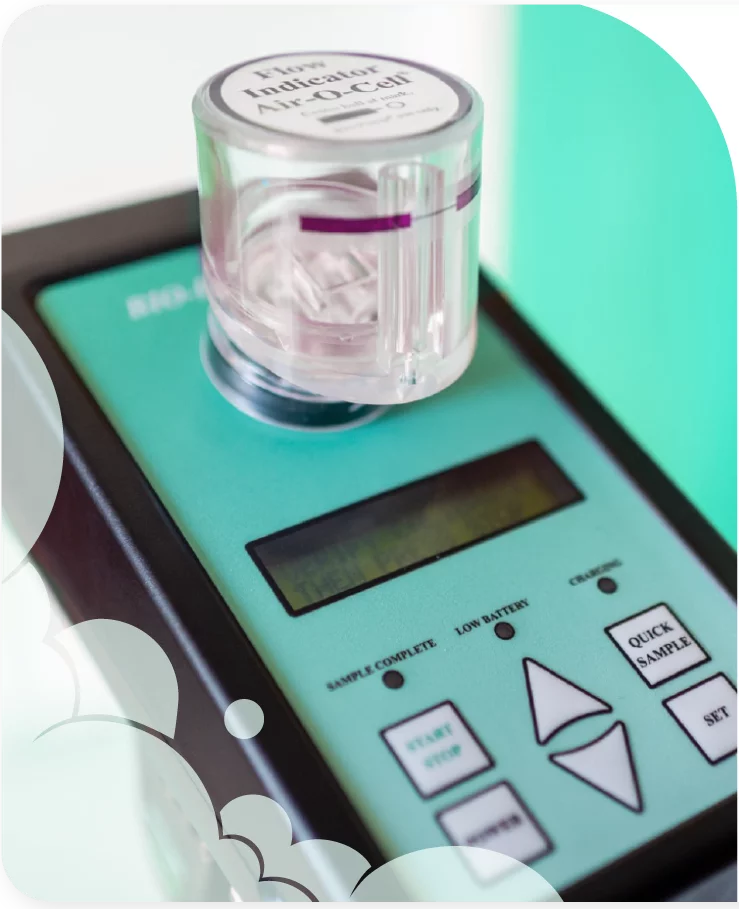
Request
A Free Estimate


